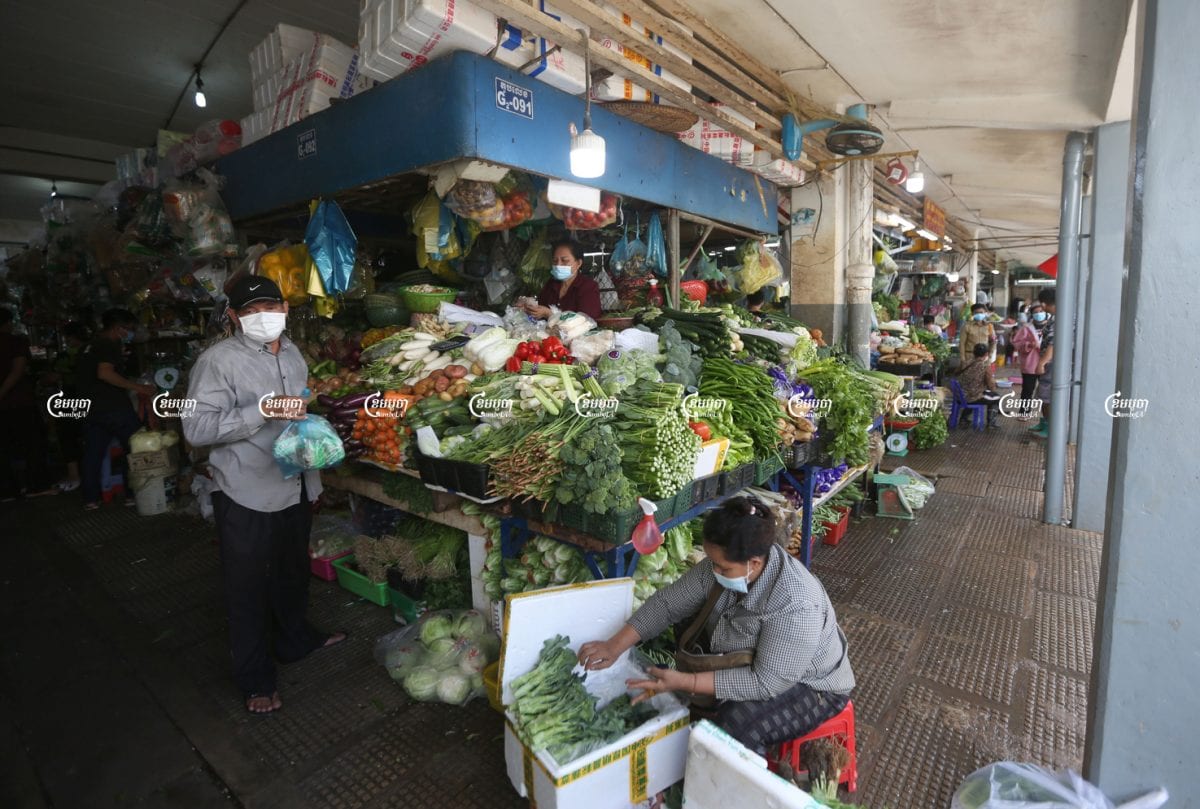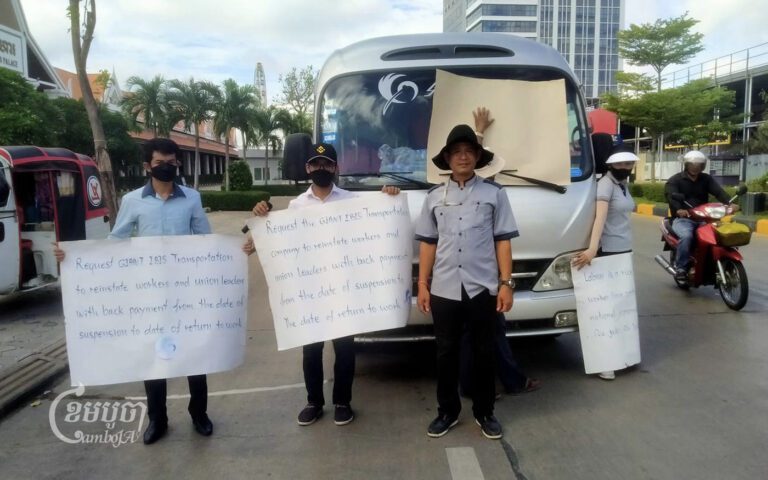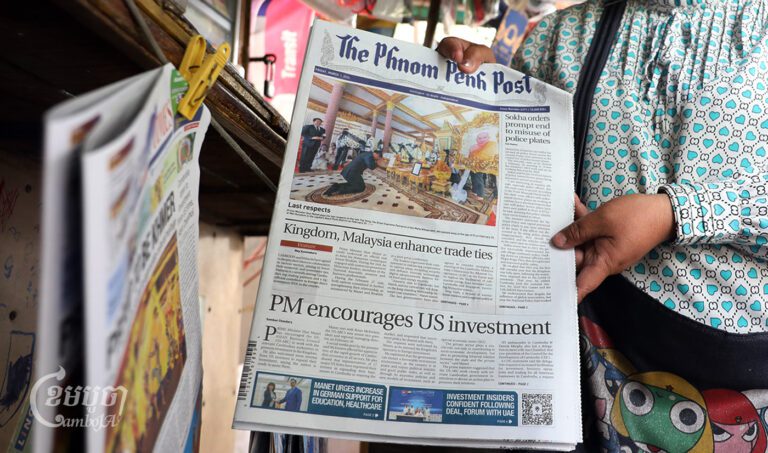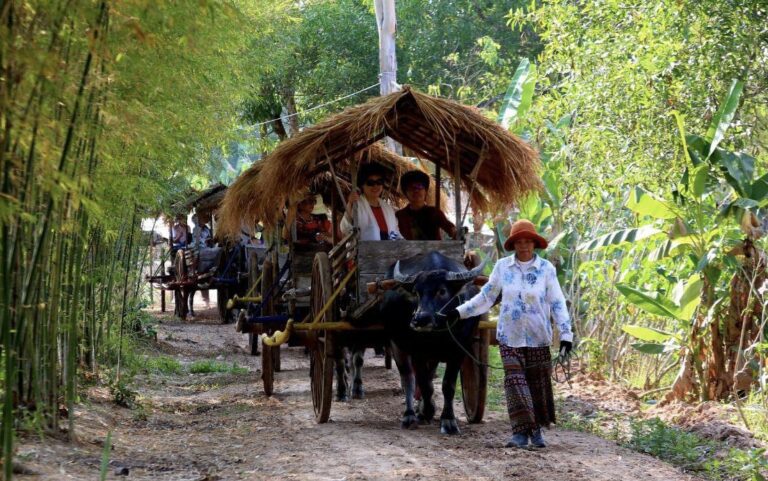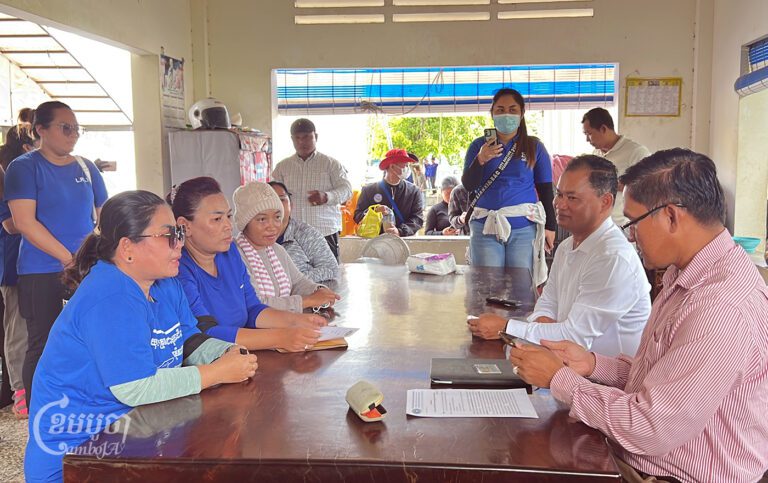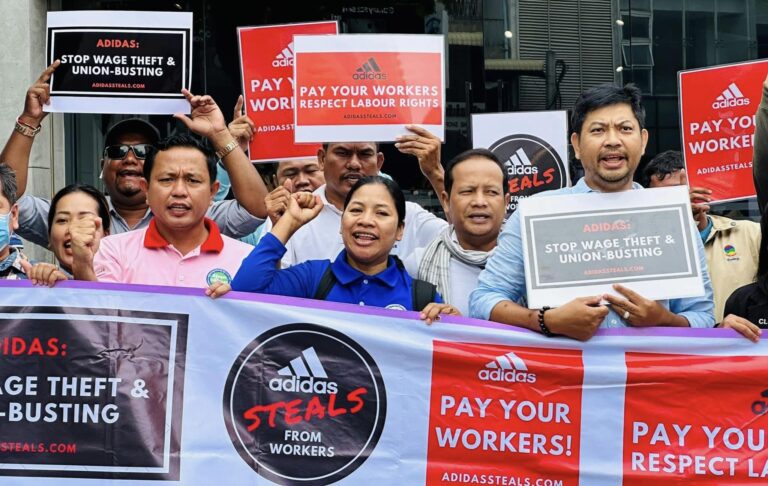Vendors have slowly begun to return to their stalls as Phnom Penh’s public markets fully reopened on Tuesday following an announcement by municipal authorities on Monday.
Speaking to CamboJA at Olympic Market in Boeung Keng Kang district, deputy market chief Yorn Yan said that he believed vendors were happy with the decision.
“We allowed all the stalls to reopen, but vendors came to sell at only five or ten percent of our 5,689 stalls because today is the first day,” he said. “Tomorrow or the next day, they will come to sell more and more.”
He said that the administration was requiring all vendors and buyers to have their temperatures scanned and to clean their hands with alcohol upon entering the market, and especially to maintain social distancing. Monday’s decision requires all vendors to strictly follow health ministry safety measures such as wearing masks, spraying alcohol and maintaining social distancing, scanning temperatures and QR codes and following the “Three Don’ts and Three Protections”.
Following the decision, all 14 district administrations as well as the Phnom Penh commerce department will need to cooperate to inspect all markets to ensure they are complying with health regulations. Individuals who fail to uphold the measures could face legal action.
All state and unregulated markets in Phnom Penh were ordered closed on the night of April 24 at the height of Cambodia’s COVID-19 outbreak, when infection numbers were almost reaching 1,000 every day following the February 20 community transmission. On May 2, state markets were allowed to reopen, though only for the sale of food and vegetables. Some unregulated market vendors have continued to sell their wares from mobile carts or by the roadside.
Siv Mei Mei, a 21-year-old clothing vendor in Olympic Market, was one of the people who returned to her stall for the first time in almost three months.
“Today, I just came to arrange my stall, and tomorrow I will start to reopen,” she said.
Mei Mei told CamboJA that the market’s closure had been hard on her family’s livelihood, forcing her to fall back on her savings for lack of income. Even before the closure, she said, her sales had fallen to half of what they had been before the virus’ outbreak.
“I am still scared of being infected, but we need income to support my family,” she said. “So we have to prevent it ourselves by wearing masks, cleaning our hands with alcohol and gel sanitizer and scanning our temperature every time we enter and exit the market.”
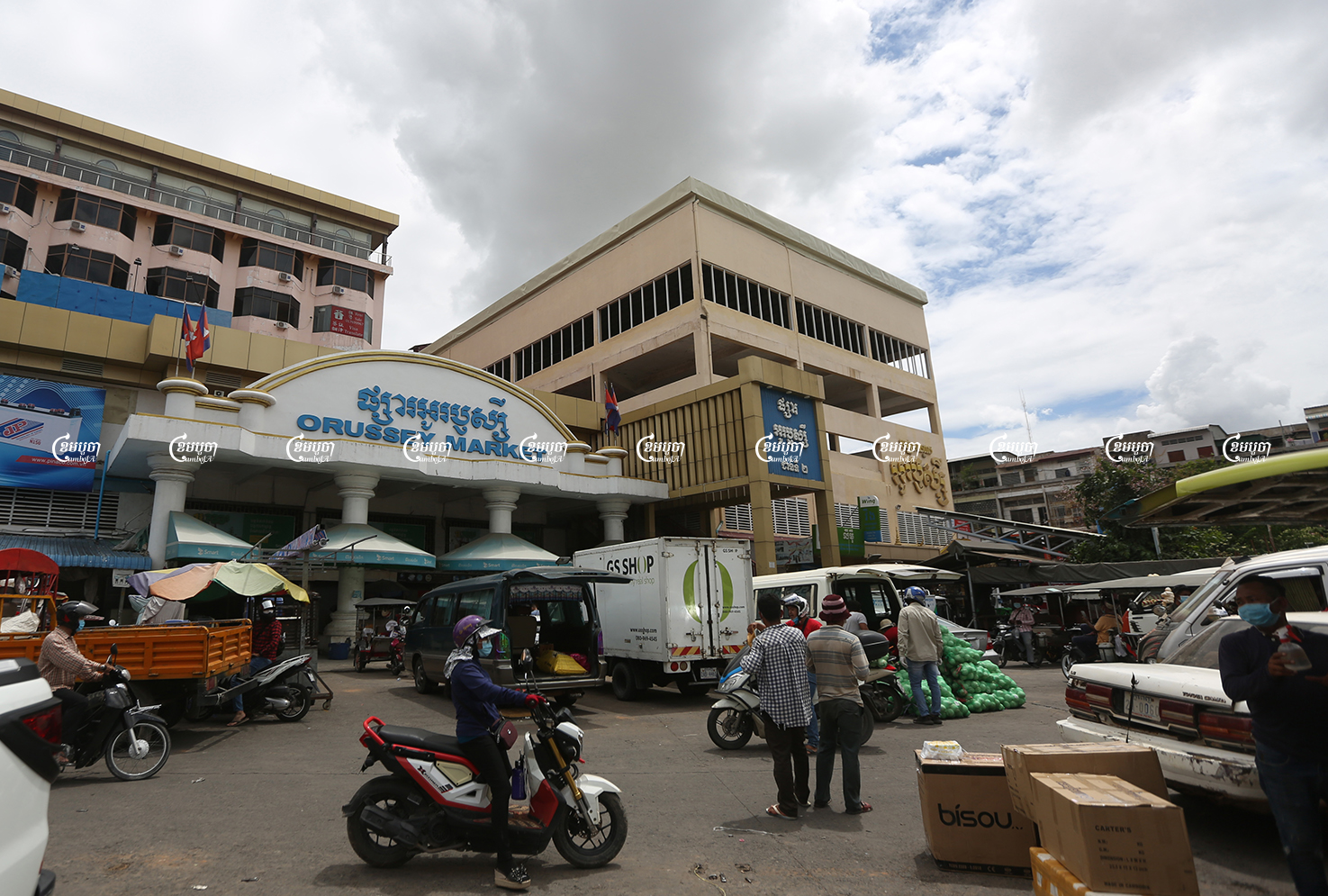
Boeung Keng Kang district governor Thim Sam An said that authorities had allowed markets to reopen to help vendors’ incomes, as their livelihoods had been suspended for a long time now.
“But [today] there were not many people who came to buy,” he said, adding that more people may come to the market tomorrow.
Hieng Vithyea, deputy chief of Doeumkor Market, declined to comment. Another market official, who asked not to be named out of concern for his safety, said that vendors had returned to around 70 to 80 percent of the market’s 800 stalls.
“There are vendors who have not come back to sell yet because some vendors have not received the information yet, and some vendors do not dare to sell yet because they are scared of infection,” he said. He added that all vendors within the market had been vaccinated already, but that a small number of people selling their wares outside the market had still not received vaccines.
“Our market’s officers are walking around the market to disseminate information about health measures and social distancing,” he said. “We also installed security cameras at the entrances and exits to monitor the activities of all people who enter the market.”
Try Srey Mom, a vendor selling cosmetics at Doeumkor market, came back today to clean and restock her stall. She told CamboJA that as a wholesaler, she had sold very well before the spread of COVID-19. Now, though, her old customers had not come back yet.
“[My stock] could sell for two to three million riel a day, but now it is only 200,000 riel,” she said.
Yang Kim Eng, president of the People’s Center for Development and Peace, said the decision depended on the government’s ability to contain the spread of COVID-19 in the capital.
“If the authorities can manage COVID-19 well, there will not be any cases in that market….it would be a good sign for people,” he said. “It would be a solution for vendors to start their business, because they have already suffered from this pandemic.”
“However, if the authorities cannot control it, it will be dangerous, as the number of COVID-19 infections is still huge from day to day,” he said.
City hall spokesman Met Measpheakdey declined to comment on Tuesday. Phnom Penh governor Khuong Sreng could not be reached for comment.
On Tuesday, the Ministry of Health reported 495 new cases of COVID-19, bringing the total count to 39,464 since the pandemic began in early 2020. The large majority of these cases have been recorded since February 20 — when the ongoing community outbreak began. The ministry has also recorded 33,571 recovered cases and 361 deaths from the virus. (Additional reporting by Sam Sopich)


